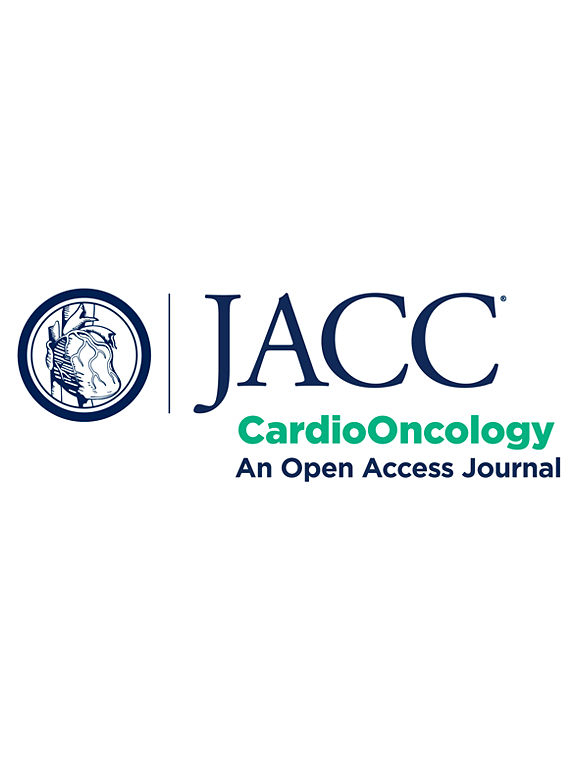血压降低和癌症风险:个体参与者水平数据荟萃分析和孟德尔随机化研究。
IF 12.8
1区 医学
Q1 CARDIAC & CARDIOVASCULAR SYSTEMS
引用次数: 0
摘要
背景:药理学降压是一种典型的终身治疗,临床医生和患者都可能担心长期使用降压药和癌症风险。然而,随机对照试验(RCTs)关于长期药理学降压对新发癌症风险的影响的证据有限,大多数知识来自观察性研究。目的:本研究的目的是评估长期降压是否会影响新发癌症、病因特异性癌症死亡和特定部位特异性癌症的风险。方法:采用单阶段个体参与者数据荟萃分析,汇总42项随机对照试验的个体水平数据。主要结局是所有类型的癌症事件,次要结局是因特异性癌症死亡和选定的部位特异性癌症。进行预先指定的亚组分析,以评估基线变量和随访时间降低血压效果的异质性。采用试验分层的Cox比例风险回归进行统计分析。对于特定部位的癌症,分析采用孟德尔随机化,使用与血压降低相关的自然随机遗传变异来模拟长期随机对照试验的设计。结果:对314016名随机分配的基线无已知癌症患者的数据进行了分析。在中位随访4年(Q1-Q3: 3-5年)期间,17,954名参与者(5.7%)患上癌症,4,878名(1.5%)死于癌症。在个体参与者数据荟萃分析中,没有发现收缩压或舒张压降低与癌症风险之间的关联(收缩压每降低5毫米汞柱的HR: 1.03 [95% CI: 0.99-1.06];每3mmhg舒张压降低的HR: 1.03 [95% CI: 0.98-1.07])。随访期间未观察到发生癌症的相对风险发生变化,也没有证据表明基线亚组的治疗效果存在异质性。没有发现对特定原因的癌症死亡有影响。对于特定部位的癌症,除了可能与肺癌风险相关外,没有观察到影响的证据(收缩压降低的HR: 1.17;99.5% ci: 1.02-1.32)。孟德尔随机化研究显示,收缩压或舒张压降低与部位特异性癌症(包括肺癌及其亚型)之间没有关联。结论:随机数据分析没有证据表明药理学降压对癌症发生风险、原因特异性癌症死亡风险或特定部位特异性癌症风险的增加或减少有实质性影响。本文章由计算机程序翻译,如有差异,请以英文原文为准。
Blood Pressure Lowering and Risk of Cancer
Background
Pharmacologic blood pressure (BP) lowering is typically a lifelong treatment, and both clinicians and patients may have concerns about the long-term use of antihypertensive agents and the risk for cancer. However, evidence from randomized controlled trials (RCTs) regarding the effect of long-term pharmacologic BP lowering on the risk for new-onset cancer is limited, with most knowledge derived from observational studies.
Objectives
The aim of this study was to assess whether long-term BP lowering affects the risk for new-onset cancer, cause-specific cancer death, and selected site-specific cancers.
Methods
Individual-level data from 42 RCTs were pooled using a one-stage individual participant data meta-analysis. The primary outcome was incident cancer of all types, and secondary outcomes were cause-specific cancer death and selected site-specific cancers. Prespecified subgroup analyses were conducted to assess the heterogeneity of the BP-lowering effect by baseline variables and over follow-up time. Cox proportional hazards regression, stratified by trial, was used for the statistical analysis. For site-specific cancers, analyses were complemented with Mendelian randomization, using naturally randomized genetic variants associated with BP lowering to mimic the design of a long-term RCT.
Results
Data from 314,016 randomly allocated participants without known cancer at baseline were analyzed. Over a median follow-up of 4 years (Q1-Q3: 3-5 years), 17,954 participants (5.7%) developed cancer, and 4,878 (1.5%) died of cancer. In the individual participant data meta-analysis, no associations were found between reductions in systolic or diastolic BP and cancer risk (HR per 5 mm Hg reduction in systolic BP: 1.03 [95% CI: 0.99-1.06]; HR per 3 mm Hg reduction in diastolic BP: 1.03 [95% CI: 0.98-1.07]). No changes in relative risk for incident cancer were observed over follow-up time, nor was there evidence of heterogeneity in treatment effects across baseline subgroups. No effect on cause-specific cancer death was found. For site-specific cancers, no evidence of an effect was observed, except a possible link with lung cancer risk (HR for systolic BP reduction: 1.17; 99.5% CI: 1.02-1.32). Mendelian randomization studies showed no association between systolic or diastolic BP reduction and site-specific cancers, including overall lung cancer and its subtypes.
Conclusions
Randomized data analysis provided no evidence to indicate that pharmacologic BP lowering has a substantial impact, either increasing or decreasing, on the risk for incident cancer, cause-specific cancer death, or selected site-specific cancers.
求助全文
通过发布文献求助,成功后即可免费获取论文全文。
去求助
来源期刊

Jacc: Cardiooncology
Multiple-
CiteScore
12.50
自引率
6.30%
发文量
106
期刊介绍:
JACC: CardioOncology is a specialized journal that belongs to the esteemed Journal of the American College of Cardiology (JACC) family. Its purpose is to enhance cardiovascular care for cancer patients by publishing high-quality, innovative scientific research and sharing evidence-based knowledge.
The journal aims to revolutionize the field of cardio-oncology and actively involve and educate professionals in both cardiovascular and oncology fields. It covers a wide range of topics including pre-clinical, translational, and clinical research, as well as best practices in cardio-oncology. Key areas of focus include understanding disease mechanisms, utilizing in vitro and in vivo models, exploring novel and traditional therapeutics (across Phase I-IV trials), studying epidemiology, employing precision medicine, and investigating primary and secondary prevention.
Amyloidosis, cardiovascular risk factors, heart failure, and vascular disease are some examples of the disease states that are of particular interest to the journal. However, it welcomes research on other relevant conditions as well.
 求助内容:
求助内容: 应助结果提醒方式:
应助结果提醒方式:


